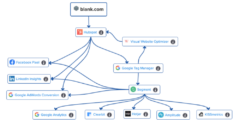In today’s fast-paced and competitive job market, companies are constantly looking for ways to attract and retain top talent. One of the most effective ways to do so is by offering a comprehensive benefits package. However, managing and administering these benefits can be a complex and time-consuming task for employers. This is where a benefits representative comes in. In this article, we will explore the role of a benefits representative, their responsibilities, and the value they bring to both employers and employees.
Contents
What is a Benefits Representative?
A benefits representative, also known as a benefits specialist or benefits coordinator, is a human resources professional who is responsible for managing and administering employee benefits programs within an organization. They act as a liaison between the company and its employees, ensuring that employees understand and utilize their benefits effectively.
Benefits representatives play a crucial role in the overall employee experience. They are responsible for designing, implementing, and communicating employee benefits programs, as well as resolving any issues or concerns related to benefits. They work closely with both employees and management to ensure that the benefits package meets the needs of the employees and aligns with the company’s goals and budget.
Read:Which of these is a benefit of fish farming?Responsibilities of a Benefits Representative
The responsibilities of a benefits representative may vary depending on the size and type of organization they work for. However, some common responsibilities include:
- Designing and implementing employee benefits programs, such as health insurance, retirement plans, and wellness programs.
- Communicating benefits information to employees, including enrollment procedures, plan changes, and eligibility requirements.
- Assisting employees with benefits-related inquiries and concerns.
- Managing the enrollment process for new hires and qualifying life events.
- Collaborating with insurance providers and other vendors to negotiate and secure competitive rates for employee benefits.
- Conducting research and staying up-to-date on industry trends and best practices to ensure the company’s benefits package remains competitive.
- Ensuring compliance with federal and state regulations, such as the Affordable Care Act (ACA) and the Employee Retirement Income Security Act (ERISA).
- Working with payroll and finance departments to ensure accurate and timely processing of benefits-related deductions and payments.
- Providing training and education to employees on how to use their benefits effectively.
- Collaborating with other HR professionals to develop and implement employee wellness initiatives.
Skills and Qualifications of a Benefits Representative
To be successful as a benefits representative, one must possess a combination of technical and interpersonal skills. Some essential skills and qualifications include:
Read:What is one benefit to working collaboratively on a team?- Strong knowledge of employee benefits programs, including health insurance, retirement plans, and voluntary benefits.
- Excellent communication and interpersonal skills to effectively communicate benefits information to employees and build relationships with vendors.
- Attention to detail and strong analytical skills to review and analyze benefits data and make recommendations for improvements.
- Ability to handle confidential information with discretion and maintain a high level of professionalism.
- Knowledge of federal and state regulations related to employee benefits, such as the ACA and ERISA.
- Proficiency in HRIS and benefits administration software.
- Experience in project management and the ability to manage multiple tasks and deadlines.
- Strong problem-solving skills to address and resolve benefits-related issues and concerns.
- Bachelor’s degree in human resources, business administration, or a related field. Some employers may also require a Certified Employee Benefits Specialist (CEBS) certification.
The Value of a Benefits Representative
Having a dedicated benefits representative brings numerous benefits to both employers and employees. Let’s take a closer look at some of the ways a benefits representative adds value to an organization.
For Employers
- Attract and retain top talent: A comprehensive benefits package is a crucial factor for employees when considering job offers. A benefits representative can help design and implement a competitive benefits package that can attract and retain top talent.
- Reduce administrative burden: Managing employee benefits can be a time-consuming task for employers. A benefits representative can handle all aspects of benefits administration, freeing up time for employers to focus on other important tasks.
- Ensure compliance: With the ever-changing landscape of employee benefits regulations, it can be challenging for employers to stay compliant. A benefits representative can ensure that the company’s benefits package is in line with all federal and state regulations.
- Improve employee satisfaction: A benefits representative can act as a point of contact for employees, addressing any concerns or issues related to benefits. This can improve employee satisfaction and morale, leading to higher productivity and retention rates.
- Cost savings: By negotiating competitive rates with insurance providers and implementing cost-saving measures, a benefits representative can help employers save money on their benefits programs.
For Employees
- Access to comprehensive benefits: A benefits representative can help employees understand and utilize their benefits effectively, ensuring they have access to a comprehensive benefits package.
- Clear communication: With a benefits representative as a point of contact, employees can have their benefits-related questions and concerns addressed promptly and clearly.
- Education and support: A benefits representative can provide training and education to employees on how to use their benefits effectively, as well as offer support in navigating the enrollment process.
- Peace of mind: Knowing that their employer offers a competitive benefits package and has a dedicated benefits representative can give employees peace of mind and improve their overall job satisfaction.
Real-Life Example: The Benefits Representative at Google
Google is known for its innovative and employee-friendly workplace culture, and their benefits package is no exception. The company offers a wide range of benefits, including health insurance, retirement plans, and wellness programs. To manage and administer these benefits, Google has a dedicated benefits representative, who is responsible for ensuring that employees understand and utilize their benefits effectively.
Read:What’s a key benefit of responsive display ads?The benefits representative at Google plays a crucial role in designing and implementing employee benefits programs. They work closely with the company’s leadership team to understand the needs and preferences of employees and design benefits packages that align with the company’s goals and budget. They also collaborate with insurance providers and other vendors to negotiate competitive rates for employee benefits.
In addition to managing benefits programs, the benefits representative at Google also focuses on employee education and wellness. They provide training and education to employees on how to use their benefits effectively and offer support in navigating the enrollment process. They also work with other HR professionals to develop and implement employee wellness initiatives, such as fitness classes and mental health resources.
The benefits representative at Google plays a crucial role in ensuring that employees are satisfied with their benefits package. They act as a point of contact for employees, addressing any concerns or issues related to benefits. This not only improves employee satisfaction but also helps Google attract and retain top talent.
Conclusion:
A benefits representative is a vital member of the human resources team, responsible for managing and administering employee benefits programs. They play a crucial role in attracting and retaining top talent, reducing administrative burden, ensuring compliance, and improving employee satisfaction. With their knowledge and expertise, they add value to both employers and employees, making them an essential asset to any organization.
As the job market becomes more competitive, the role of a benefits representative will continue to evolve and become even more critical. Employers who invest in a dedicated benefits representative can reap the benefits of a satisfied and engaged workforce, while employees can have peace of mind knowing that their benefits are being managed by a professional.









